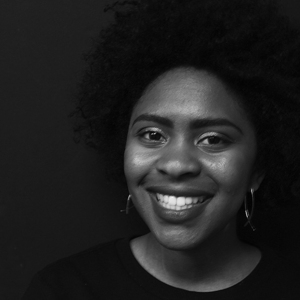Colvin: Conservative campaign should re-evaluate definition of family
Apparently, mom doesn’t always know best.
Socially conservative media monitor One Million Moms launched a campaign last week against American Girl Magazine after it published a feature story on a girl with gay parents.
The article’s focus is a warm-hearted 11-year-old named Amaya Scheer, a former foster care kid who helps her father create Comfort Cases, which are packages for foster care children. The fact that Scheer has two dads is incidental. The sexuality of Scheer’s parents’ is not mentioned at all in the article and is only made apparent by a family photograph that accompanies the spread.
While One Million Moms has the right to boycott American Girl, the group’s accusation that the brand is “pushing the homosexual agenda” is baseless. The doll company has never explicitly promoted LGBTQ rights, has never created a queer character and the Scheer article does not even discuss LGBTQ issues at all.
Despite the controversy surrounding the article, American Girl should be applauded for widening the image of what it really means to be an American girl. Although One Million Moms considers itself a pro-family organization, its boycott not only rejects valid families, but also diverts attention away from the foster care conversation.
American Girl’s portrayal of a gay family in a rightfully favorable light could give courage and confidence to its readers with gay parents. The article functions to prove that the number and gender of parents in a household do not matter — what is really important is that kids are being raised in a happy, supportive and stable home.
The Adoption and Foster Care Analysis and Reporting System reports that more than 415,000 kids made up the United States’ foster care system in 2014. Of that number, 50,600 kids were adopted. These numbers illustrate America’s need for any couple that is willing to accept foster care participants into their homes regardless of their sexuality.
Be that as it as may, placement agency Lifelong Adoptions estimates that 40 percent of all adoption agencies accept applications from LGBTQ couples. At least 33 percent of those agencies would reject gay couples either due to religious restrictions or state law.
Beyond legal discrimination, gay couples also face social obstacles when it comes to raising kids. The main argument against LGBTQ parenting is that children ought to grow up with a mom and dad in the home in order to develop properly. However, studies show that kids raised with gay parents turn out just the same — for better and for worse — as kids who grow up with heterosexual parents.
Due to the fact that there is stigma attached to gay adoption, American Girl Magazine should be commended for showing that there is no shame in having gay parents and that they are as worthy to be parents as straight ones.
As a brand, American Girl tends to be thoughtful in its representation of girls. The main cast of book and film characters comes from diverse backgrounds. One Million Moms should realize that American Girl’s decision to feature a girl with gay parents in its magazine is just another example of the brand maintaining a fair level of diversity and inclusivity — this time, in regard to the families in which girls grow up.
One Million Moms and other “pro-family” organizations should focus on improving the welfare of American children, not punishing the people who are doing a good job raising them based on the parents’ sexualities.
Families should not be judged on their heteronormative standards, but by their ability to create a positive developmental environment for their kids.
Caroline Colvin is a sophomore magazine journalism major. Her column appears weekly. She can be reached at [email protected] and followed on Twitter at @fkacaro.
Published on November 12, 2015 at 1:08 am





